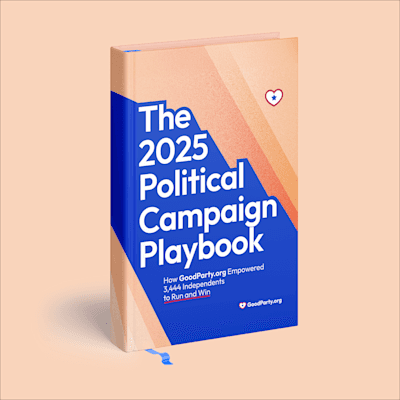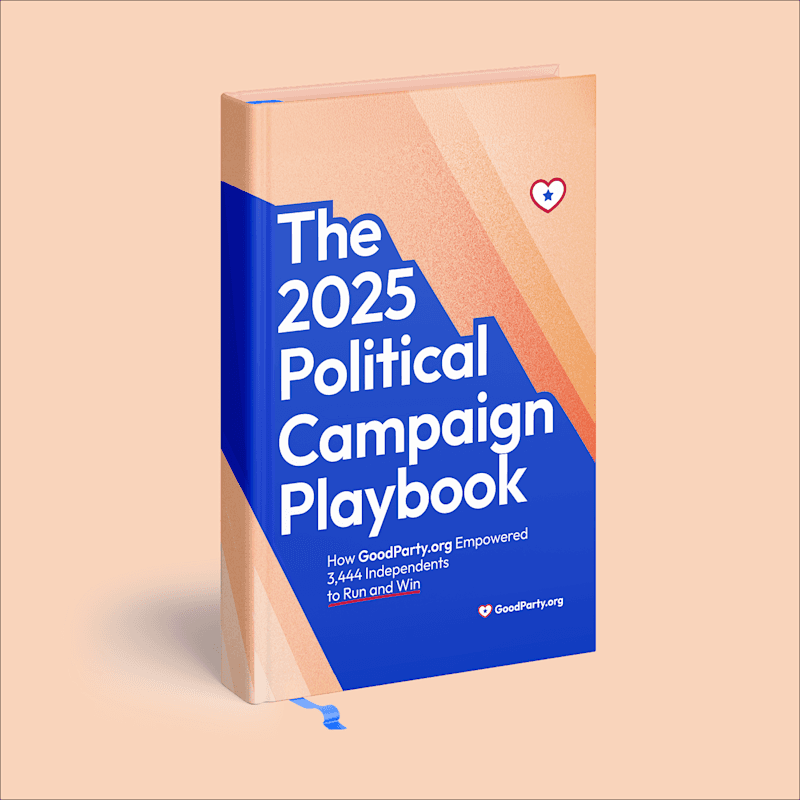
How to Become a Political Consultant: A Comprehensive Guide
In a dynamic fusion of politics and strategy, political consultants play a pivotal role in shaping the trajectory of campaigns and influencing the democratic process. A political strategist is an expert providing strategic political advice to political candidates, parties, or groups.
Utilizing their proficiency in domains such as campaign administration, public relations, polling, and media tactics, they play a vital role in molding political campaigns and public viewpoints. These professionals utilize their knowledge to create successful approaches targeting voter backing, navigating intricate political scenarios, and attaining sought-after electoral results.
Through a thorough investigation, they develop effective political communication and campaign plans to achieve their client's goals, leveraging their expertise in messaging, voter outreach, campaign management, and media relations. In this article, we will delve deeper into how to become a political consultant and the political consulting career path.
Political Consulting Duties
At its core, political consulting guides political candidates, parties, and advocacy groups through the complex realm of public engagement. This role involves crafting impactful campaign strategies that resonate with target demographics, understanding their concerns, and tailoring messages accordingly. Data-driven insights enhance decision-making, allowing consultants to navigate politics more precisely.
A political consultant conducts thorough surveys and analyses to grasp voter preferences and traits. These insights guide them in suggesting resource allocation for favorable outcomes. Besides strategic planning, consultants proficiently handle media interactions, public communication, and crisis management during campaigns.
Equally essential, political strategists shape policy positions and cultivate alliances among stakeholders. Their expertise extends to overseeing campaigns and ensuring cohesive alignment towards electoral success. Political consultants significantly impact election outcomes and broader political trajectories by adroitly advising on policy and orchestrating faction collaboration. In this multifaceted role, they aim for candidates' triumph and shaping resonant political results for constituents.
Political Consulting Career Path
To grow a political consulting career path involves navigating a multi-dimensional journey that demands a deliberate amalgamation of political consulting education, practical experience, and effective networking. To embark on a career in political consulting, there are steps to becoming a political consultant.
The establishment of a strong academic foundation takes center stage in how to become a political consultant. Earning a bachelor's degree in political consulting courses such as political science, public administration, political communications, or closely related fields provides essential knowledge about the intricacies of governmental structures, the nuances of policy analysis, and the art of proficient communication strategies. This educational underpinning equips aspiring political advisors with a critical framework on how to become a political consultant, understanding the mechanisms that drive political decisions and how civic engagement unfolds.
Steps to Becoming a Political Consultant
Political advising encompasses campaign strategy, candidate counsel, and molding public opinion.
Achieving a role as a policy advisor involves a series of political consultant steps:
Start by engaging in internships or campaign positions to enhance your qualifications through hands-on involvement. Engaging in internships with government entities or public relations companies provides a priceless understanding of the complexities within the political sphere. This direct exposure enables prospective consultants to comprehend the dynamics of campaigns, the molding of public opinion, and the art of impactful messaging. Cultivating a distinct set of skills holds equal significance.
Mastery of tasks like data analysis, market research, political analysis, and digital media tactics empowers political directors to offer insights rooted in data and create campaigns with a profound impact. Nurturing exceptional communication abilities, encompassing both written and verbal aptitude, streamlines productive collaboration with clients and fellow team members. Develop expertise in research, communication, and data analysis.
Emphasize networking to build relationships within the political arena. Consider advancing your career into positions such as campaign manager or specializing in polling or media strategy fields. Success in this demanding and influential field hinges on adaptability and a thorough grasp of the political landscape.
Becoming a political consultant requires establishing a network within the political sphere. Participating in industry gatherings, workshops, and conventions generates chances to establish connections with prominent individuals, potential clientele, and fellow advisors. Networking serves not only to widen professional connections but also to nurture a more profound grasp of shifting political trends.
Earning credibility frequently requires civic engagement in smaller-scale campaigns in the initial stages of the road map to being named a political consultant. Supporting community-level candidates or advocacy organizations allows consultants to use their political consulting skills and build a portfolio. Achieving positive results enhances your reputation and paves the way for involvement in more significant endeavors.
Dynamics and Impact of the Political Consulting Industry
Positioned at the heart of the political landscape, various political consulting organizations function as a pivotal hub. Here, strategic prowess, refined political communication skills, and sharp analytical insights intersect to sculpt the courses of political campaigns and candidates. Operating as an intricate ecosystem, this industry brings together professionals who provide strategic guidance to political entities, expertly navigating the complexities inherent in the electoral terrain.
At the core of the industry's operations lie strategists, adept individuals spanning a diverse spectrum of expertise. Ranging from political communication and public relations to data analysis, political analysis, and policy strategy, these professionals wield a multifaceted skill set.
Leveraging their extensive knowledge and insights, these consultants furnish customized guidance, offering invaluable recommendations that assist candidates and campaigns in deftly maneuvering in the continually shifting landscape of political challenges.
The industry's offerings extend far beyond a singular campaign aspect; they envelop the entire electoral expedition, stretching from the formulation of campaign strategies' inception to their execution and even further. Within this expansive scope, consultants assume a central role in fine-tuning campaign messaging, honing policy stances, and crafting outreach tactics attuned to specific demographic resonances.
Political Consulting Tips
Within the sphere of political consulting, a set of fundamental strategies can lay the foundation for achieving favorable outcomes. Ethics and integrity stand as essential pillars within the realm of a political coordinator's profession.
The commitment to maintaining transparency and unwavering adherence to ethical norms plays a pivotal role in cultivating trust not only among clients but also among the broader community.
The reputation of political consultants is intricately tied to their capacity to deliver impartial guidance and make constructive contributions to the democratic mechanisms that underpin our society. In essence, the practice of ethical conduct and the upholding of integrity not only bolsters individual credibility but also the very foundations of a functional and trustworthy political landscape.
Political Consultant Qualifications
Political consultant qualifications entail a diverse array of vital competencies and attributes essential for effective participation in the realm of politics. Central to these qualifications is a mastery of political consulting skills such as devising campaign strategies, analyzing data, crafting messaging, and pinpointing target voters.
Proficiency in leveraging digital platforms and social media to connect with a wide spectrum of constituents holds immense significance. A thorough grasp of public policy, electoral frameworks, and the dynamics of political landscapes nurtures the ability to make well-informed decisions.
A compelling aptitude for political communication, spanning persuasive writing and adept public speaking, is critical for the compelling expression of concepts. The capacity to promptly adapt to evolving scenarios, engage in analytical thinking, and seamlessly cooperate within teams spanning various disciplines stands as pivotal. The bedrock of successful political consulting lies in ethical comportment, entailing the respect of divergent perspectives while upholding integrity. Sustained learning and the monitoring of political trends are imperative to maintain a competitive advantage.
Planning and Strategizing for Political Campaigns
The foundation of prosperous political endeavors rests upon a methodical and organized procedure known as political campaign planning. Skillfully, consultants utilize this well-designed strategic structure to navigate the complex landscape of politics and elections. This comprehensive method of campaign planning involves a sequence of crucial stages that consultants diligently adhere to maximize their effectiveness in campaign management. Consultants initiate by conducting extensive research and analysis, delving into demographics, socio-economic aspects, and historical voting trends of the target constituency. Immersed in these dimensions, consultants uncover crucial concerns that resonate with voters, allowing tailored messaging. Next is the establishment of distinct objectives. These goals could encompass achieving a specific vote percentage, swaying undecided voters, or enhancing awareness regarding specific policy positions. These defined targets serve as guiding benchmarks throughout the campaign's evolution. The subsequent phase involves the establishment of well-defined goals. These objectives could encompass attaining a designated vote percentage, influencing undecided voters, or heightening awareness about specific policy positions. These established aims function as guiding milestones throughout the campaign's advancement. The creation of a persuasive and consistent message is significant. A political consultant condenses intricate policy complexities into relatable messages that resonate with the audience. These messages are then polished through focus groups and testing to ensure their effectiveness. Developing a strategic media and outreach strategy is of utmost importance. Consultants devise optimal methods to convey the campaign's message across various platforms, including traditional media, digital channels, and direct voter interaction. Determinations about the timing and frequency of advertisements, speeches, and other political communication methods are established during this stage. In the digital age, consultants leverage social media, email campaigns, and online advertising to establish direct connections with voters, engage in real-time conversations, and counter misinformation. Crisis management is another vital aspect, with consultants proactively anticipating challenges and devising contingency plans to mitigate potential adverse impacts on the campaign's direction and reputation. Understanding opponents' strengths and weaknesses is pivotal, as consultants analyze rival strategies to proactively adapt and respond. The continuous collection of feedback and subsequent adaptation constitute a pivotal phase, with consultants diligently monitoring campaign progress and gathering input from constituents. This ongoing feedback loop allows for real-time adjustments to strategies and tactics.
Mobilizing supporters for active participation on the day of the election through targeted outreach and reminders is a key mobilization strategy. Following the campaign, consultants engage in post-campaign evaluation, assessing outcomes against initial goals and gaining insights to shape future strategies. Skillfully navigating these steps, political strategists employ campaign planning as a navigational tool through the ever-evolving landscape of political discourse. This strategic methodology enhances the effectiveness of their efforts, enabling them to expertly convey messages, rally supporters, and exert influence over electoral results.
Political Consulting Skills and Advisory Proficiency
Harnessing a diverse skill set, public strategists provide impactful guidance to their clients.
They draw upon their proficiency in communication, public relations, and political strategy to offer strategic perspectives across multiple domains:
Message Creation: These consultants skillfully produce potent and concise messages that deeply connect with target audiences, guaranteeing lucidity and pertinence.
Poll Examination: By meticulously analyzing polling data, they precisely identify voter sentiments, trends, and preferences, empowering clients to tailor their campaigns with precision.
Media Engagement: Imparting expert guidance for maneuvering media interactions, these consultants mentor clients in maintaining message consistency and skillfully managing interviews.
Artful Speech Composition: They demonstrate proficiency in formulating speeches that effectively convey the client's vision and foster audience connections, all while succinctly presenting intricate ideas.
Priority Setting for Issues: Directing clients towards a strategic focus on pivotal matters, they consider public concerns, party platforms, and potential ramifications.
Strategies for Endorsements: Formulating concise pitches to secure backing from significant individuals or organizations.
Planning Voter Engagement: Creating compact strategies to link with diverse voter segments, optimizing the impact of outreach endeavors.
Managing Personal Image: Offering counsel on appearance, clothing selections, and overall presentation to establish visual resonance with voters. In essence, the proficiency of a political consultant lies in their adept deployment of a myriad of finely honed skills. These skills collectively serve as the cornerstone of their ability to provide not only precise but also profoundly impactful guidance to their clients. With a firm grasp of communication, public relations, and political strategy, these consultants navigate the multifaceted terrain of political campaigns with unparalleled expertise.
Conclusion
The political consultancy sector emerges as an essential powerhouse, firmly rooted in its multifaceted benefits. With its strategic prowess, it molds the trajectory of political campaigns, magnifying the resonance of candidates' messages and deftly navigating the intricate terrains of electoral arenas. By furnishing tailored guidance across a spectrum of disciplines – encompassing messaging and data analysis – it equips candidates to seamlessly forge connections across diverse voter segments.
Moreover, its significance surpasses the confines of a solitary election cycle, encompassing the entirety of the political voyage. Its adaptability to technological shifts ensures campaigns remain germane in the digital epoch, leveraging online platforms for precision-targeted involvement. Ultimately, political consultancy occupies a pivotal position in contemporary politics, delivering the requisite instruments for candidates to adeptly navigate, deeply resonate, and triumph within the complex tapestry of democratic processes.
Frequently Asked Questions
- What is GoodParty.org?
- I’m curious about running for office. Where can I learn more?
- I’m not running for office, but I’d like to get involved. How can I support Independent candidates?

